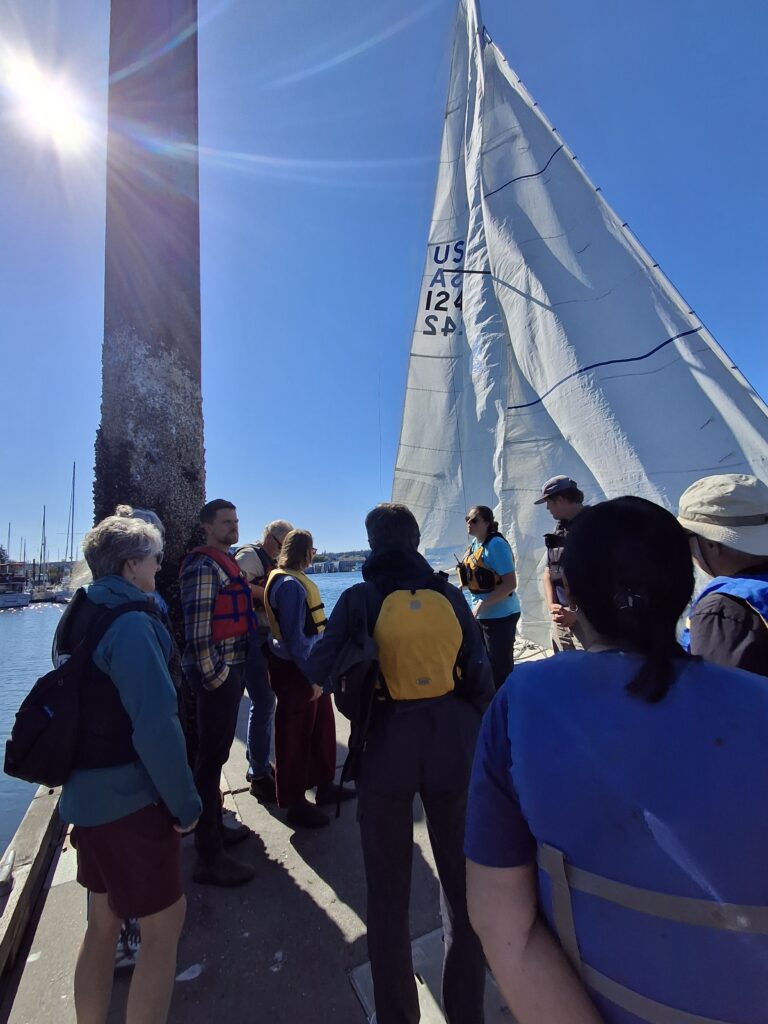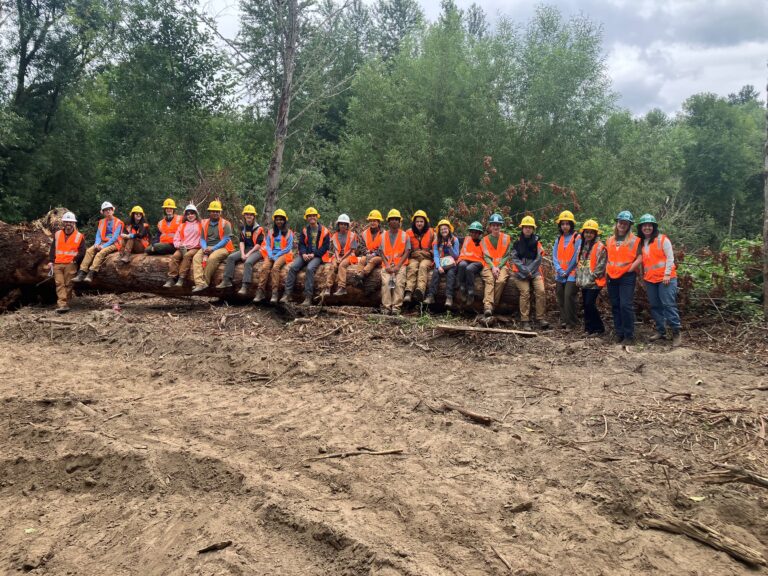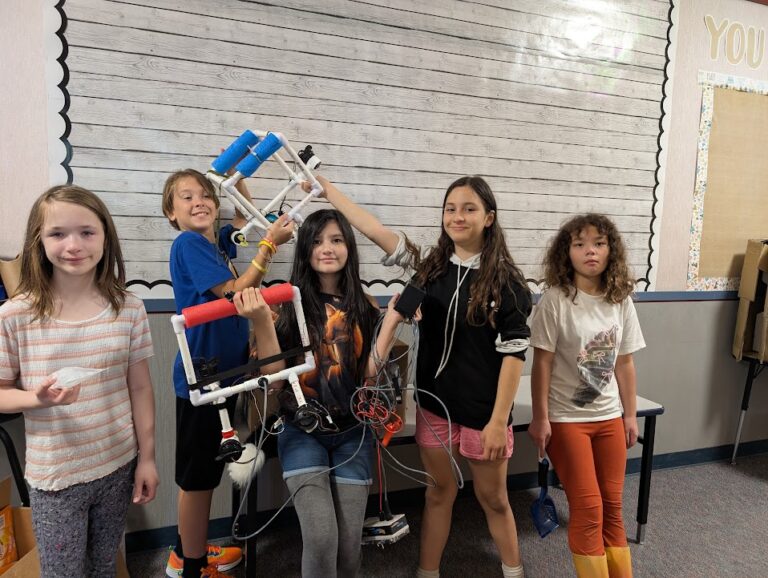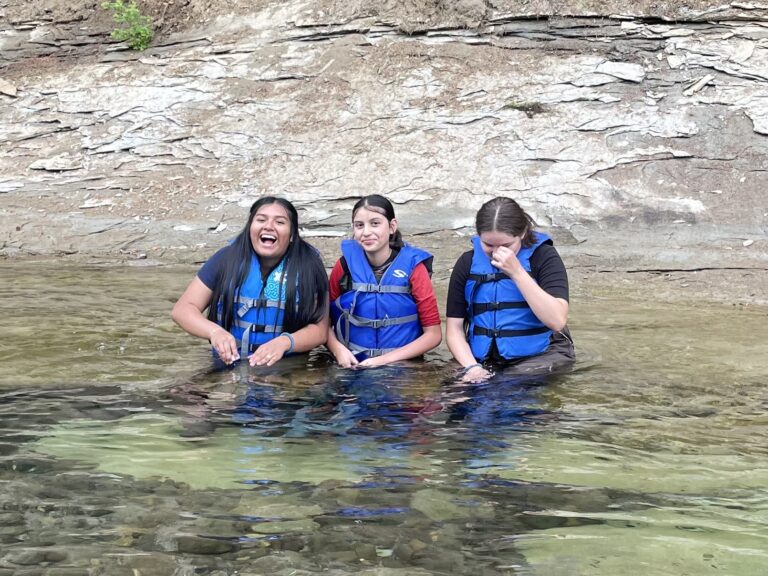Iron Horse Brewery supplies 1,400,000 pounds of 2-row gain to Beard Ranch per year.
‘A group of teachers’ walks into a bar’ sounds like the setup for a groan-worthy joke, probably involving a pun. However, if the teachers in question just finished PEI’s Asynchronous Food Waste workshop, they might just be on a research mission.
We hear you scoffing but let us explain.
PEI’s Food Waste storyline workshop is among the most popular of our climate science education series because of its relatability for both students and teachers (everyone eats) and its simple demonstration of how quickly collective food waste can add up. Sixteen teachers from ten school districts attended the most recent asynchronous Food Waste Storyline workshop which ran from February through May.
A highlight of these workshops is a video explaining the unusual collaboration between Kyler Beard, owner of Ellensburg’s Beard Ranch, and Jake Fleming, production supervisor at Iron Horse Brewery.
“I love that local businesses are partnering together to create less waste while being able to maintain their product. I hope they’ve been an inspiration to others to share things that would be considered waste to one person, but an asset to another.” — Workshop Participant
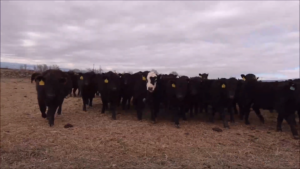
Breweries generate significant waste in the form of grain and ‘side stream,’ which consists of hops, yeast, and spent grain residue. Disposing of these byproducts can be costly and may strain local landfills and wastewater treatment systems. Instead of throwing them away, Fleming provides 60,000 pounds per week of brewers’ grain to Beard Ranch as feed for the cattle to enjoy with a mix of bakery waste and hay chaff. In one year alone, the brewery gave 1,400,000 pounds of 2-row grain to the ranch and an additional 400,000 pounds of specialty malts.
As for the side stream, roughly 2,000 gallons goes to Ellensburg’s Natural Selection Farms to build compost. “That’s 2000 fewer gallons that aren’t going to our city wastewater system and that they don’t have to treat,” Fleming explains in the video. For Beard, using locally-sourced grains help to keep feed and transportation costs down.
PEI’s Associate Director, Columbia Basin & Coast Megan Rivard shot the video during the COVID pandemic as students were returning to classrooms and teachers were scrambling for ideas for safe field experiences. Although it is now nearly four years old, the video’s subject remains compelling for workshop participants. “This is still having a major impact on teachers,” says Rivard. “The video was born out of COVID when we were trying to figure out how to do field trips during lockdown, and it’s continuing to generate such positive feedback.”
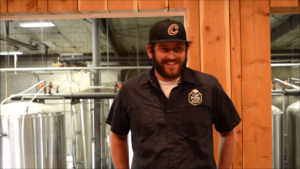
“I love that local businesses are partnering together to create less waste while being able to maintain their product,” said one. “I hope they’ve been an inspiration to others to share things that would be considered waste to one person, but an asset to another.”
A separate participant called for more research, preferably in person. “This gives me a good reason to go talk with some local breweries and see what they’re up to,” he noted. “All joking aside, the Pacific Northwest has so many breweries that could potentially do this. I think this is a great blueprint for others to replicate.”
But one teacher summed it up best, proclaiming, “I love even more!”
*Note: Irish Death is one of Iron Horse Brewery’s most popular beers.

